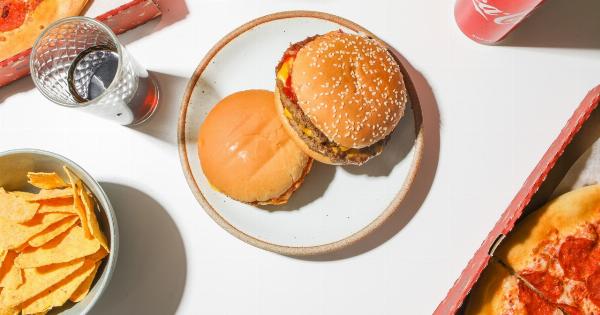Do you find yourself constantly battling with greasy hair, no matter how often you wash it? Does your hair seem to get oily just hours after you’ve shampooed it? If so, you’re not alone.
Many people struggle with excessive oiliness in their hair, and it can be a frustrating and embarrassing issue to deal with. In this article, we will dive deep into the causes and remedies for oily hair, shedding light on the mystery behind this common problem.
The science behind oily hair
Understanding the science behind oily hair is key to finding effective solutions. The natural oil produced by the scalp, known as sebum, is essential for keeping our hair moisturized and healthy.
However, when the sebaceous glands in the scalp produce an excessive amount of sebum, it can lead to greasy hair.
There are several factors that can stimulate the production of sebum, including hormonal imbalances, genetics, diet, and even certain hair products.
Hormonal changes during puberty, pregnancy, or menopause can trigger an increase in sebum production, while genetic factors determine the overall oiliness of an individual’s hair and scalp.
Diet and lifestyle influences
Believe it or not, your diet and lifestyle choices can also impact the oiliness of your hair. Consuming a diet high in greasy, fried foods and unhealthy fats can contribute to excessive sebum production.
Additionally, stress, lack of exercise, and inadequate sleep can disrupt the hormonal balance in your body, leading to oilier hair.
The role of hair care products
The hair care products you use can play a significant role in making your hair oily. Certain shampoos, conditioners, and styling products contain ingredients that can strip away too much oil from your scalp, causing it to produce more to compensate.
Look out for products labeled as “hydrating,” “moisturizing,” or “for dry hair” if you have oily hair.
Washing frequency and technique
The frequency and technique of washing your hair can also influence its oiliness. While it may be tempting to wash your hair every day to combat the greasiness, over-washing can actually worsen the problem.
Frequent washing can strip the scalp of its natural oils, causing it to produce more oil to compensate. Aim to wash your hair every 2-3 days instead, using a gentle shampoo and conditioner.
Another important aspect is the way you wash your hair. Applying shampoo directly to your scalp and massaging it in gently can help remove excess oil and buildup. Avoid using hot water, as it can stimulate the sebaceous glands and lead to oilier hair.
Finish your hair wash routine by using cold water to rinse, as it helps to close the hair cuticles and reduce oiliness.
Common mistakes to avoid
There are several common mistakes people with oily hair tend to make, unknowingly exacerbating the issue. One mistake is over-brushing your hair. Brushing too frequently can distribute the oil from the scalp to the ends, making your hair greasier.
Instead, limit brushing to once or twice a day, using a wide-toothed comb or a brush specifically designed for oily hair.
Additionally, avoid touching your hair too often, as the natural oils from your hands can transfer to your hair, making it greasy. Try to resist the temptation to constantly run your fingers through your hair or play with it throughout the day.
Home remedies and treatments
While there is no one-size-fits-all remedy for oily hair, there are several home remedies and treatments that can help manage the problem.
Apple cider vinegar:
Mix one part apple cider vinegar with two parts water and use it as a final rinse after shampooing. The acidity of the vinegar helps to balance the pH of your scalp and reduce oiliness.
Lemon juice:
Apply freshly squeezed lemon juice to your scalp and leave it on for a few minutes before rinsing. The citric acid in lemon juice can help regulate oil production and give your hair a fresh scent.
Hair masks:
Try using homemade hair masks containing ingredients like aloe vera, yogurt, or honey. These natural ingredients can nourish your hair without adding excessive oil.
Dietary adjustments:
Make dietary adjustments by incorporating more fruits, vegetables, and lean proteins into your meals. Avoid greasy and processed foods, as they can contribute to oily hair.
When to seek professional help
If you have tried various remedies and still struggle with excessively oily hair, it may be time to consult a dermatologist or a trichologist – a specialist in hair and scalp disorders.
They can conduct thorough examinations to identify any underlying conditions or offer more targeted treatments.
Conclusion
Oily hair can be a nuisance, but understanding its causes and implementing the right remedies can help you achieve a fresher, more balanced scalp.
With the tips and insights provided in this article, you can now unlock the mystery behind your oily hair and take steps towards healthier, more manageable locks.































